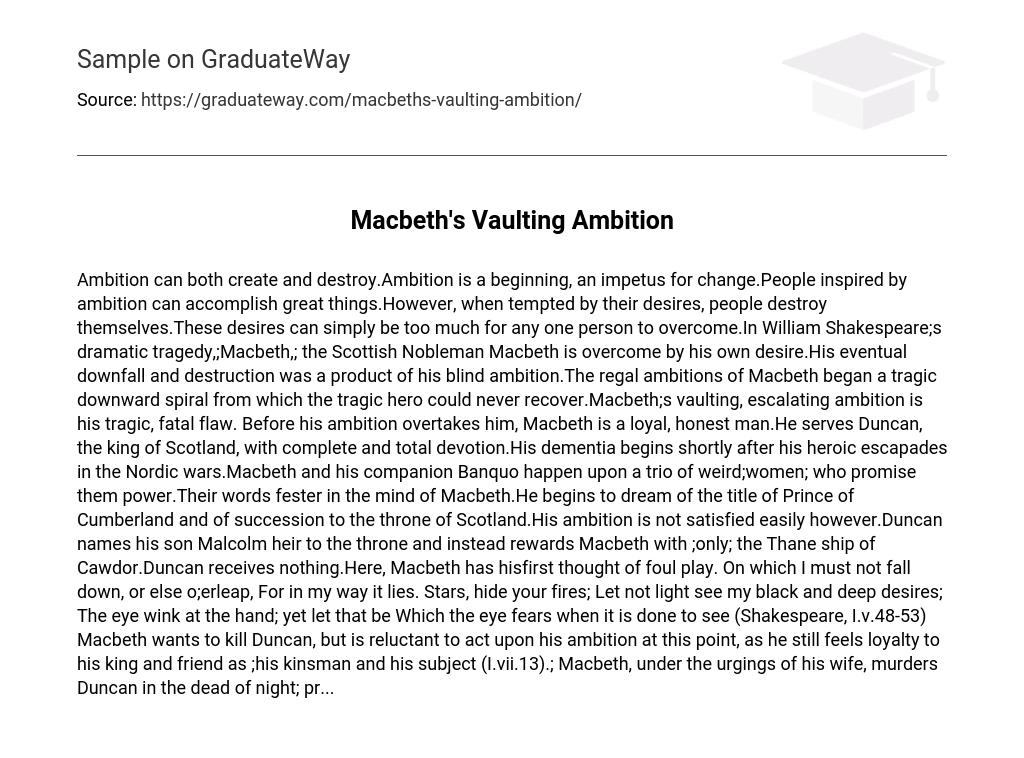Ambition can have both positive and negative effects. It can be a driving force that motivates individuals to make changes and achieve great things. However, when desires become overwhelming, they can lead to self-destruction.
In William Shakespeare’s play “Macbeth,” the main character Macbeth falls victim to his own ambition. His downfall is a result of his reckless aspirations. Macbeth’s intense and uncontrollable ambition proves to be his tragic flaw.
Prior to being consumed by his ambition, Macbeth was a loyal man who served King Duncan faithfully. After encountering three mysterious hags who promise him power, Macbeth becomes obsessed with becoming the Prince of Cumberland and succeeding the throne of Scotland.
However, Macbeth’s thirst for power is insatiable. When Duncan names his son Malcolm as his heir instead of Macbeth, he entertains the idea of foul play in order to fulfill his ambitions.
Stars, conceal your flames; Do not let light witness my dark and profound desires; Let the hand deceive the eye; but let that be What the eye dreads when it sees it done (Shakespeare, I.v.48-53). Macbeth desires to assassinate Duncan, but he hesitates to act on his ambition at this moment, as he still maintains loyalty to his king and friend as “his relative and his subject” (I.vii.13). Encouraged by his wife, Macbeth kills Duncan during the nighttime; pr…





